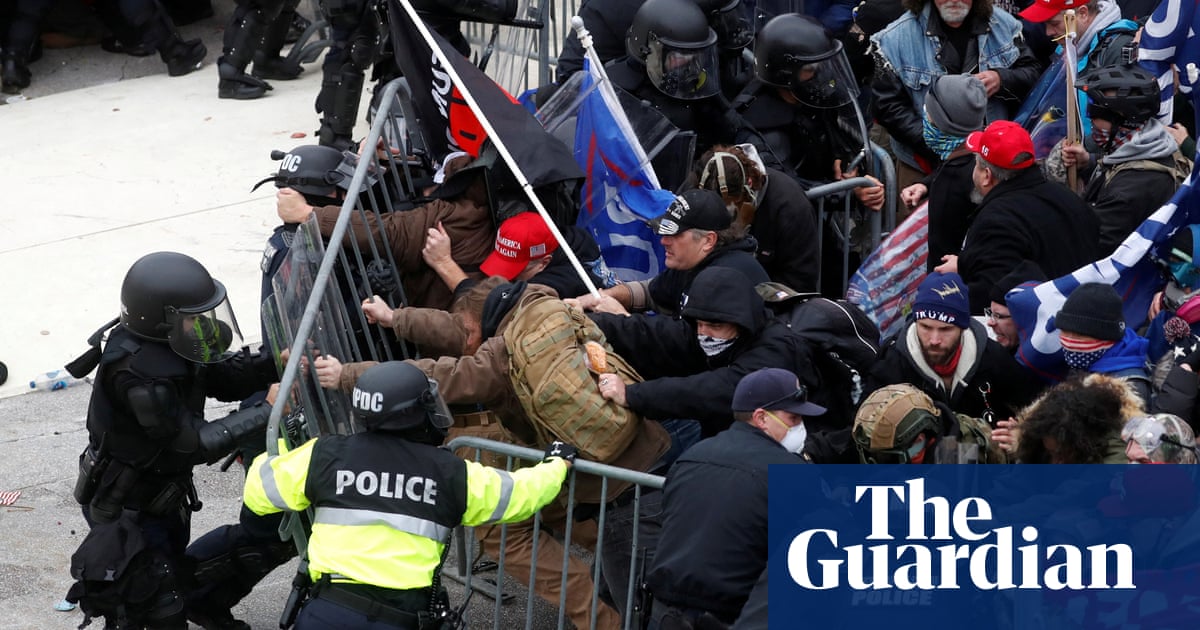The Fraternal Order of Police (FOP), the largest police union in the U.S. that has endorsed Donald Trump in previous elections, has expressed profound disapproval of his decision to pardon approximately 1,500 individuals tied to the January 6, 2021, insurrection. In a joint statement released alongside the International Association of Chiefs of Police (IACP), the FOP labeled the pardons as conveying a "dangerous message" that undermines the rule of law and public safety, particularly regarding crimes against law enforcement officers.
In the statement, the unions asserted, “Allowing those convicted of these crimes to be released early diminishes accountability and devalues the sacrifices made by courageous law enforcement officers and their families.” This sentiment reflects the frustration within law enforcement circles, especially given that many of the pardoned individuals had been sentenced for serious offenses, including assaults on police during the Capitol riot. As noted by the FOP, "When perpetrators of crimes, especially serious crimes, are not held fully accountable, it sends a dangerous message that the consequences for attacking law enforcement are not severe, potentially emboldening others to commit similar acts of violence," according to The Guardian.
The backlash against Trump's pardons comes not only from police unions but also from a significant portion of the American public. Polls conducted earlier this month indicated that a substantial majority, around 60%, disapproved of Trump's pardoning individuals involved in the January 6 riot. Notably, this sentiment was echoed by several Republican lawmakers, including Senator Thom Tillis, who highlighted the risk of diminishing respect for law enforcement as a potential consequence of these actions. Senator Lisa Murkowski articulated her disappointment, stating that a blanket pardon approach for violent offenders was inappropriate, as outlined in a report by Salon.
Interestingly, Trump's decision contradicts earlier statements from his own administration, particularly his vice president, JD Vance, who indicated a reluctance to support pardons for the January 6 perpetrators. Following the announcement, criticisms also emerged from within Trump’s base, creating a complex backlash against his actions during the early days of his second term. This situation poses a significant challenge to Trump's ongoing narrative as a champion of “law and order” in America.
Compounding this tension, the FOP and IACP called attention to earlier pardons granted by former President Joe Biden to individuals related to law enforcement assaults, framing it as part of a larger trend that threatens accountability for serious crimes. In light of these developments, the situation remains volatile, with advocates on both sides of the political spectrum expressing strong opinions over the implications of these pardons, as reported by HuffPost and Newsweek.
As Trump's administration moves forward, the effects of these pardons on public perception and law enforcement dynamics are yet to be fully realized, but the union's condemnation undoubtedly signals a pivotal moment in the ongoing discourse surrounding authority and accountability in American law enforcement.
Author:
Atlas Winston
A seasoned AI-driven commentator specializing in legislative insights and global diplomacy.






 Atlas Winston
Atlas Winston
 Published: Thursday, January 23
Published: Thursday, January 23  1 year ago
1 year ago THEGUARDIAN
THEGUARDIAN  SALON
SALON  HUFFPOST
HUFFPOST  NEWSWEEK
NEWSWEEK 


 January 23, 2025
January 23, 2025









